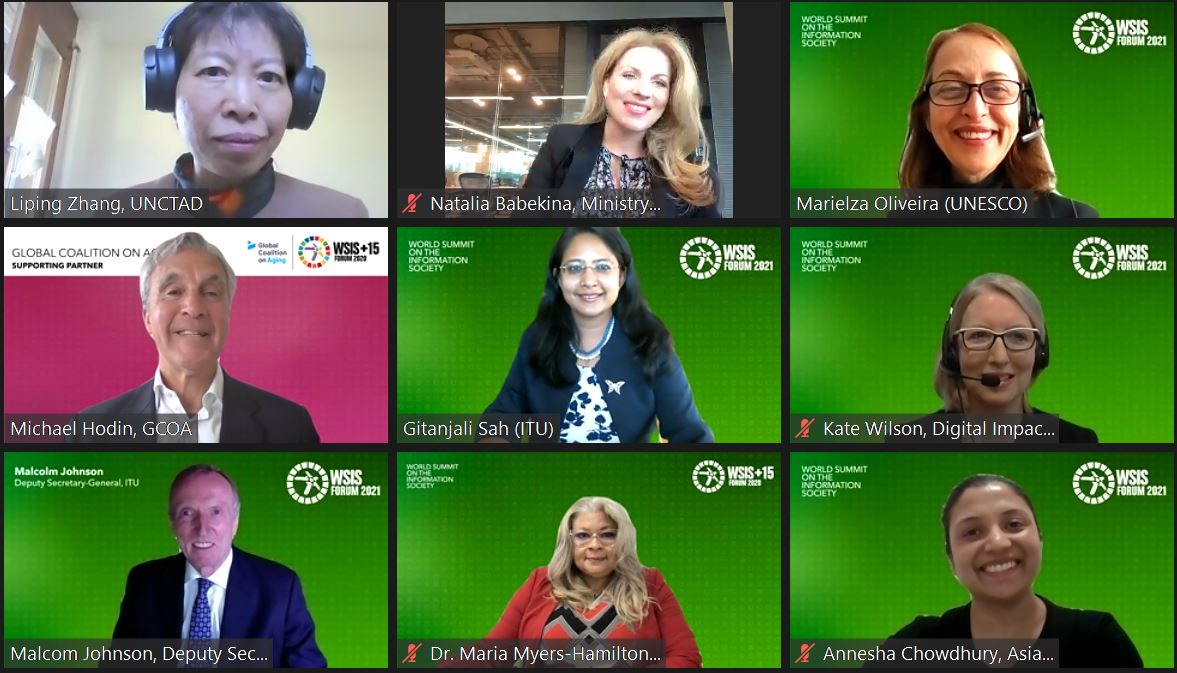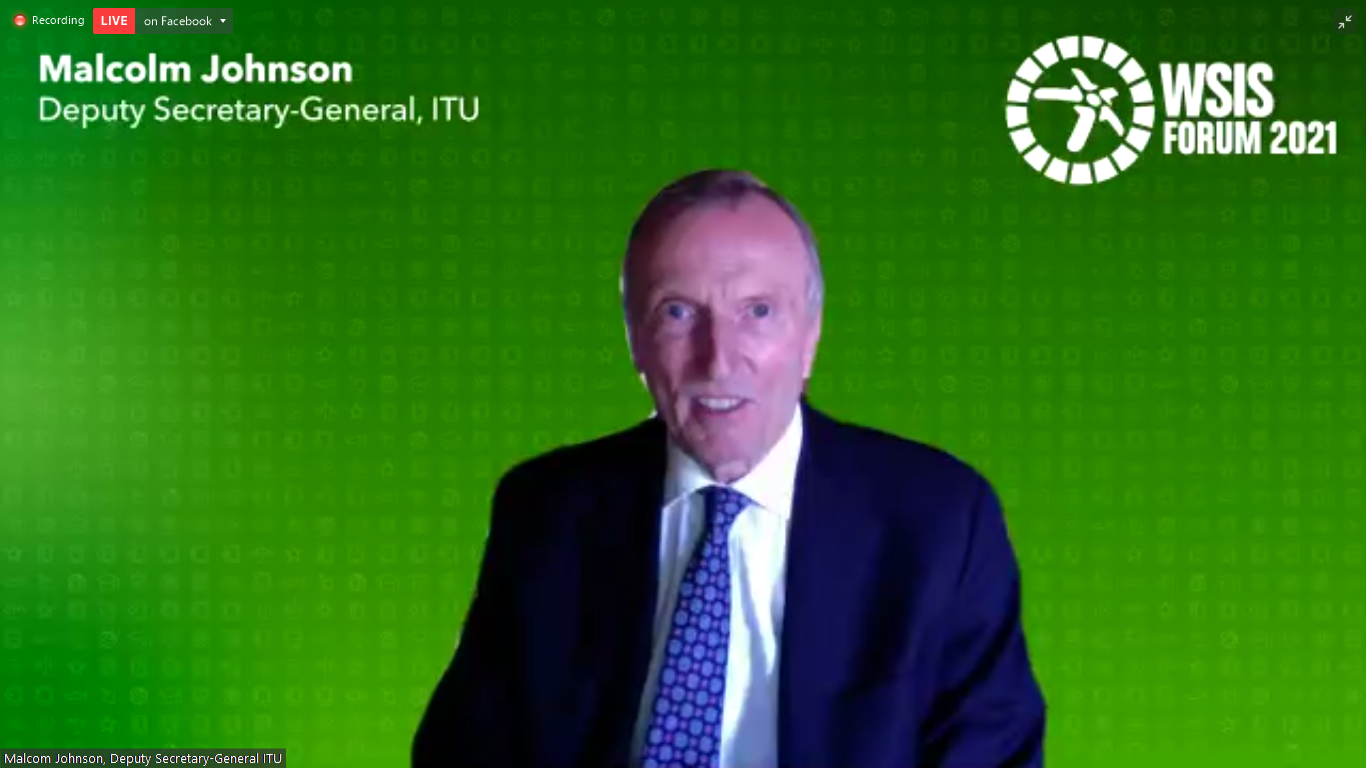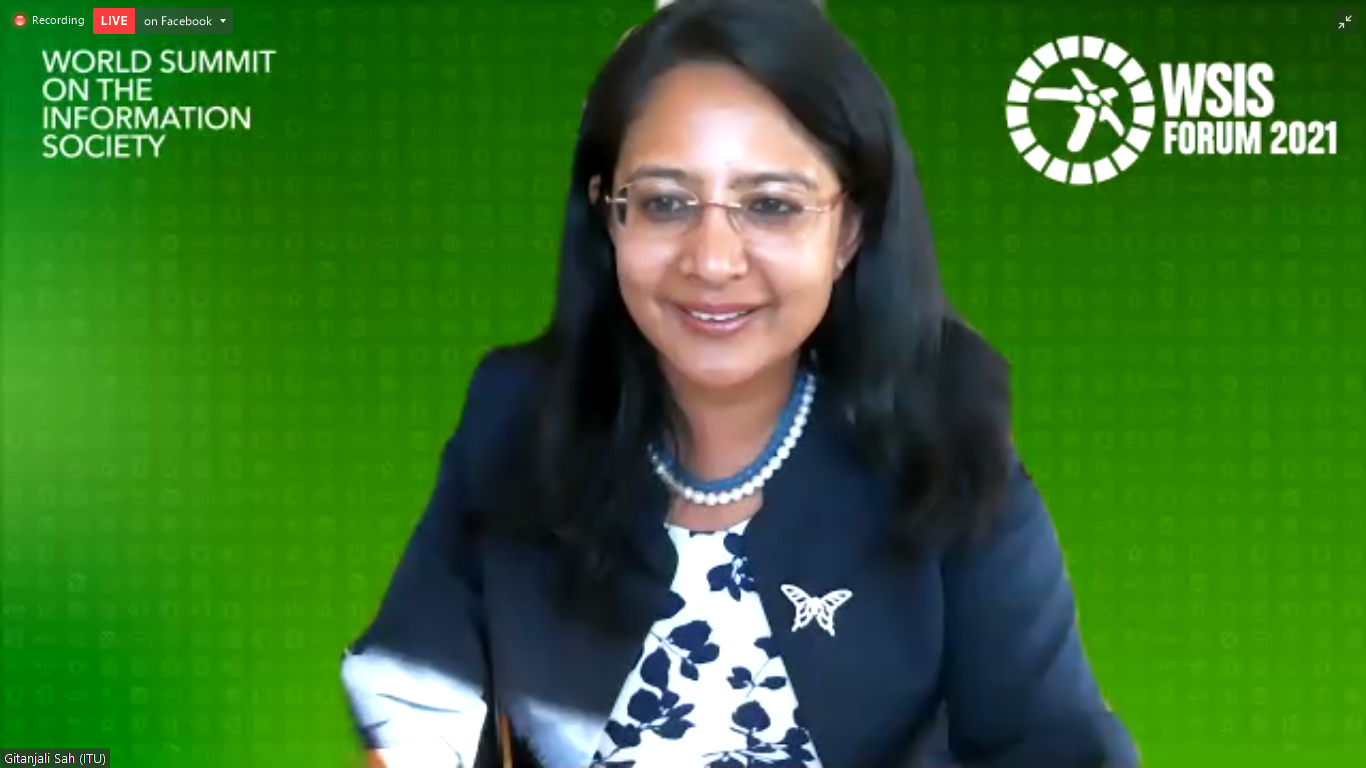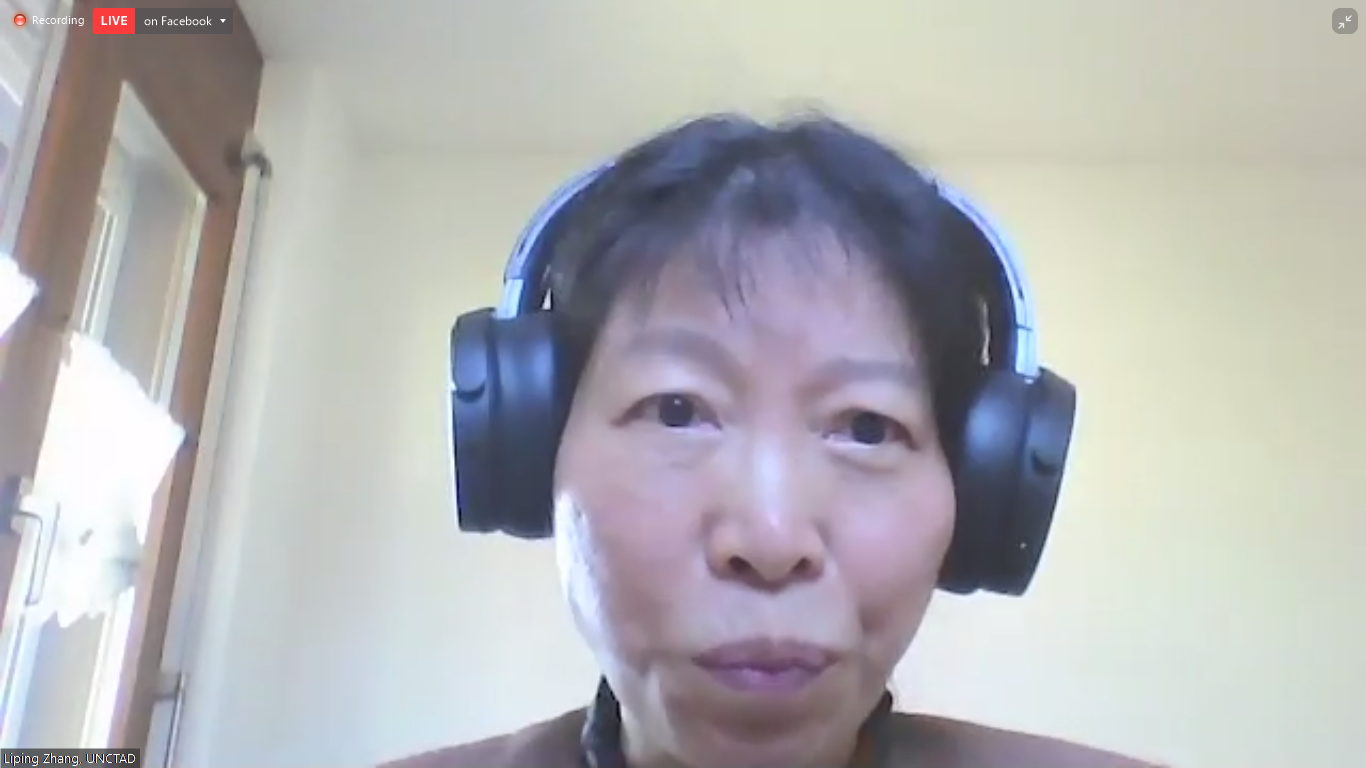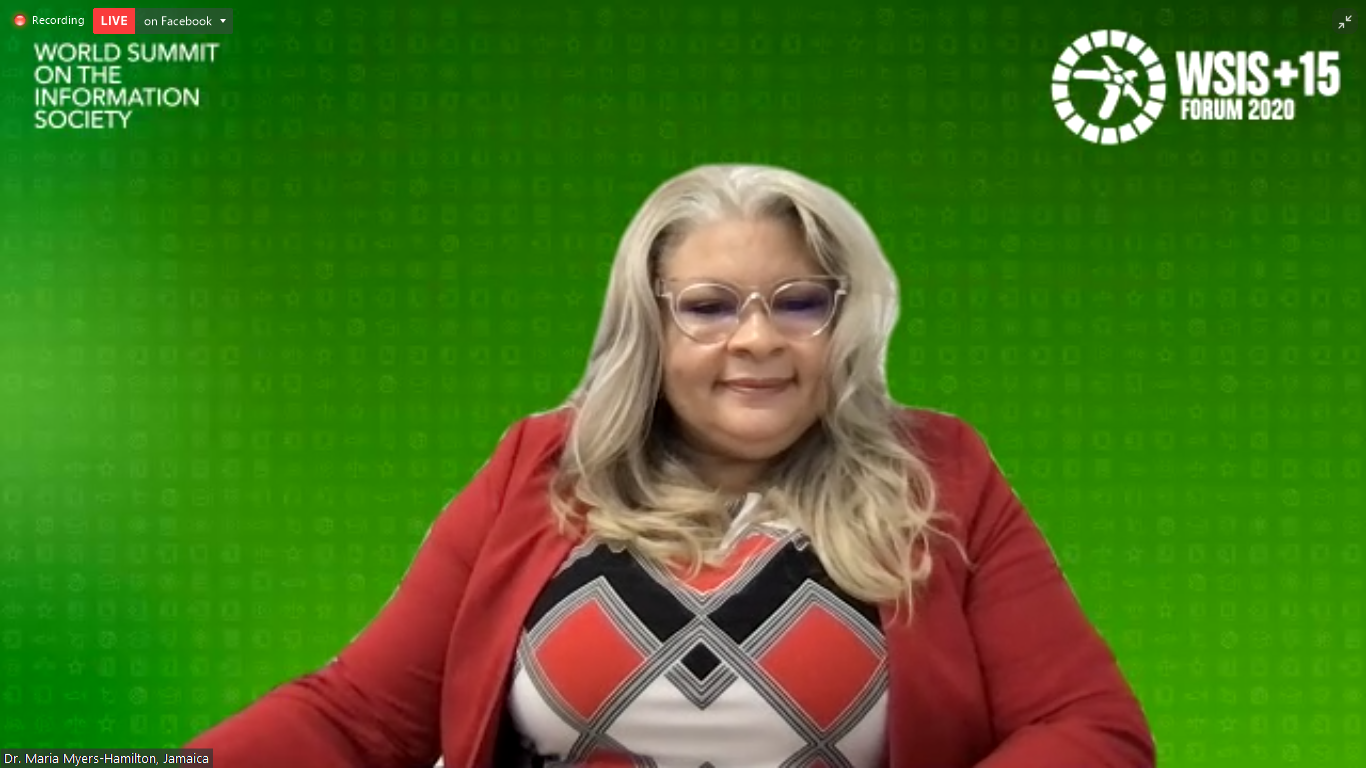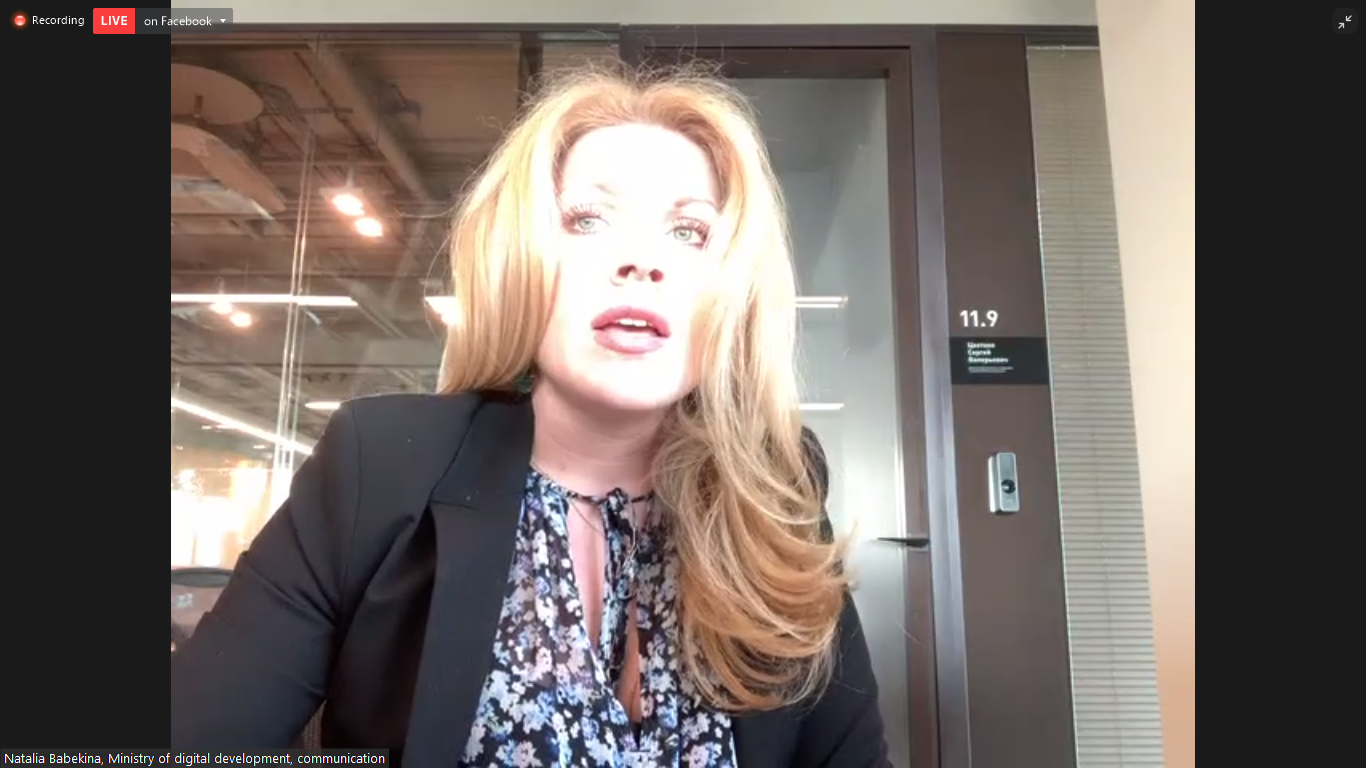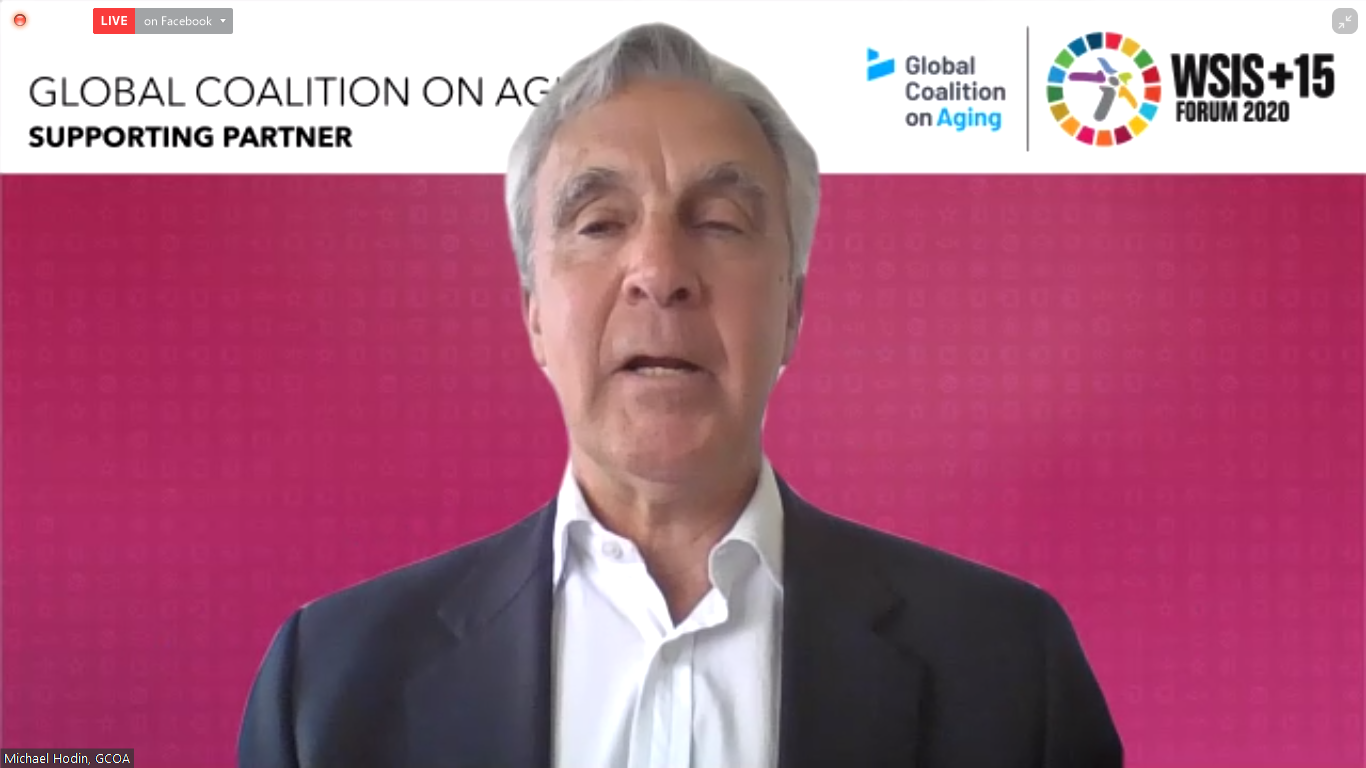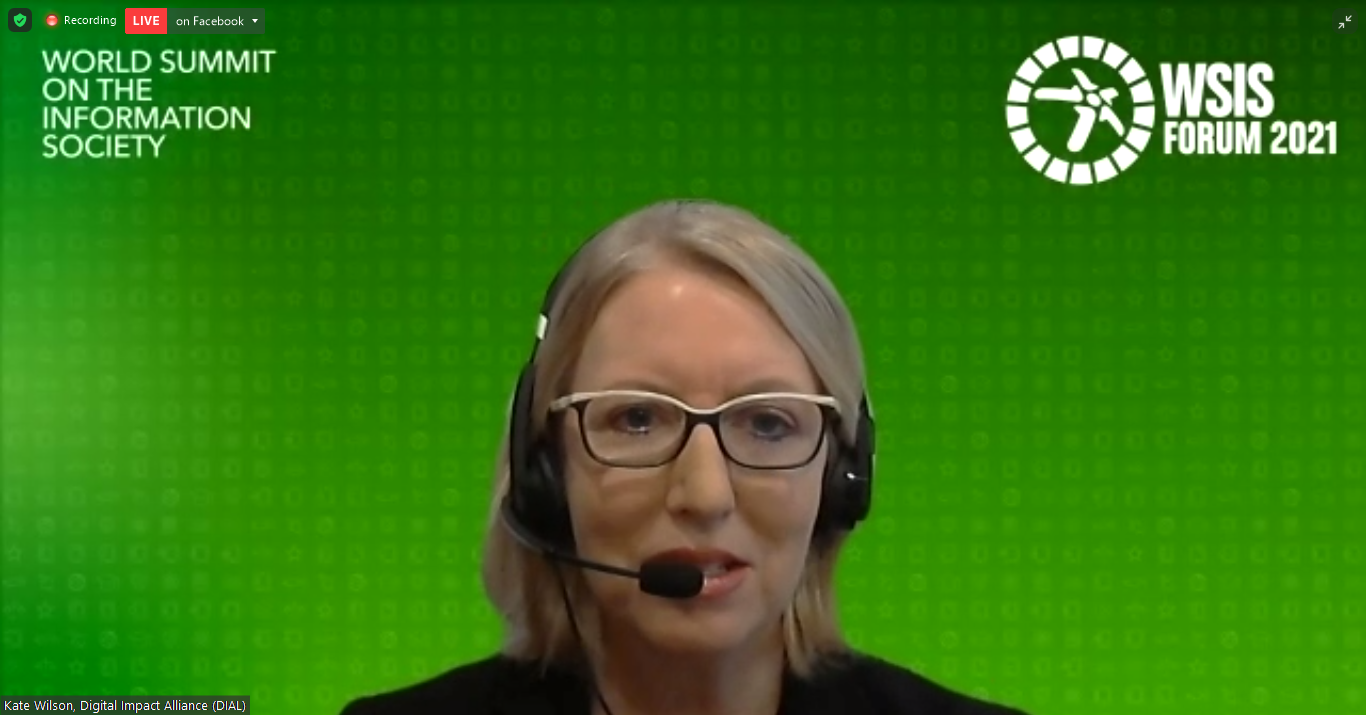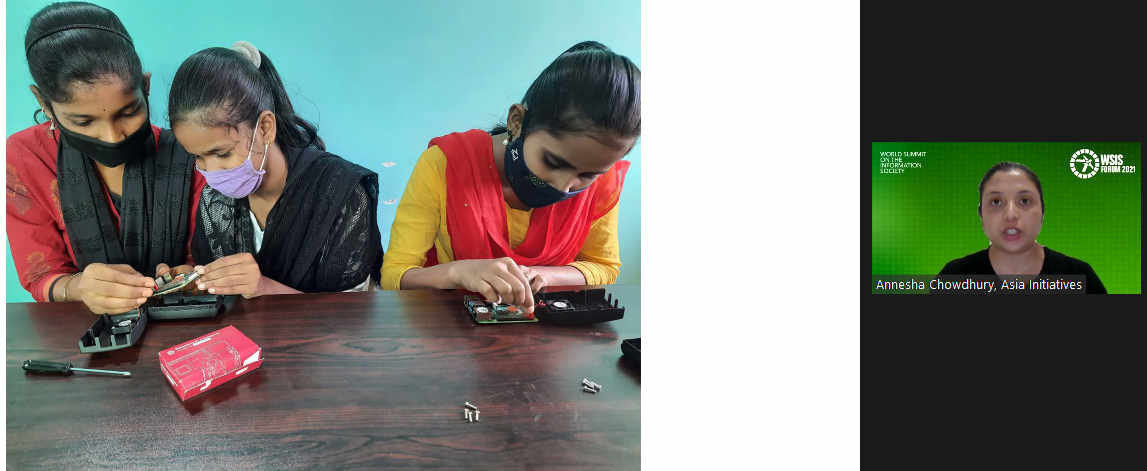STI Forum Side Event: ICTs for Inclusive, Resilient and Sustainable Societies and Economies (WSIS Action Lines for achieving the Sustainable Development Goals)
WSIS/UNGIS
Session 434
This session is a side event to be organized on the margins of the STI Forum.
Information and Communication Technologies (ICTs) are rapidly transforming societies and economies, with potential to address complex and interconnected development challenges and build a sustainable future for all as envisioned in the 2030 Agenda. More needs to be done to leverage the development potential of digital technologies.
Highlighting the theme of the WSIS Forum 2021, this session will focus on how the ICTs and the WSIS Action Lines can help accelerate the Sustainable Development Goals (SDGs), learning from the COVID-19 experience to build an inclusive, resilient, and sustainable societies and economies. It is important to strengthen partnerships and digital cooperation towards achieving goals and targets across the 2030 Agenda for Sustainable Development.
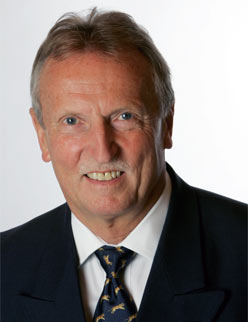
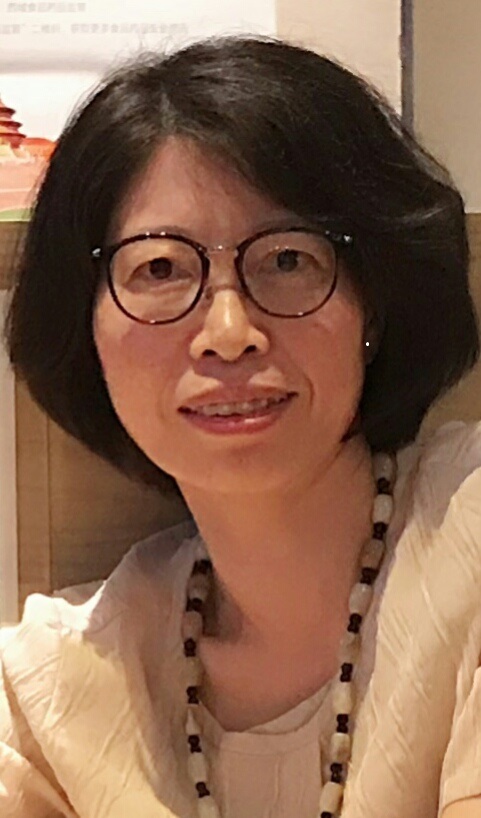
Ms. Zhang joined UNCTAD in October 2009, working on trade negotiations and commercial diplomacy until July 2020. She has since been heading the science, technology and innovation policy section, whose work includes servicing the UNCSTD and participating in the UNTFM.
Before joining UNCTAD, she worked in China’s Ministry of Commerce and spent 7 years in the Chinese Mission to the World Trade Organization in Geneva.
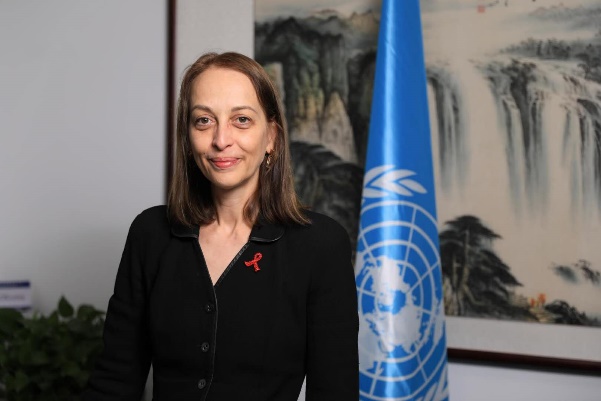
Dr. Marielza Oliveira (Brazil) is the UNESCO Director for Partnerships and Operational Programme Monitoring, Communications and Information Sector, since February 2021. From 2015 to 2020, she was Director of UNESCO Beijing, covering the 5 East Asian countries. Previously, she was the global Results Manager (data scientist) for UNDP, where she also held positions as country manager for a portfolio of Latin American countries (2001-2015). Previous positions also include Systems Engineer at the US Army Construction Engineering Research Lab/USA Corps of Engineers (US, 1987-1991, where she was responsible for AI systems development), senior consultant at Fundacao Dom Cabral (Brazil, 1995-1999), and Director of Executive Education at Ibmec Business School (2000–2001). Dr. Oliveira holds a Master of Science in Finance (1990) and a Ph.D. in Business Administration (1995) from the University of Illinois at Urbana-Champaign, USA.
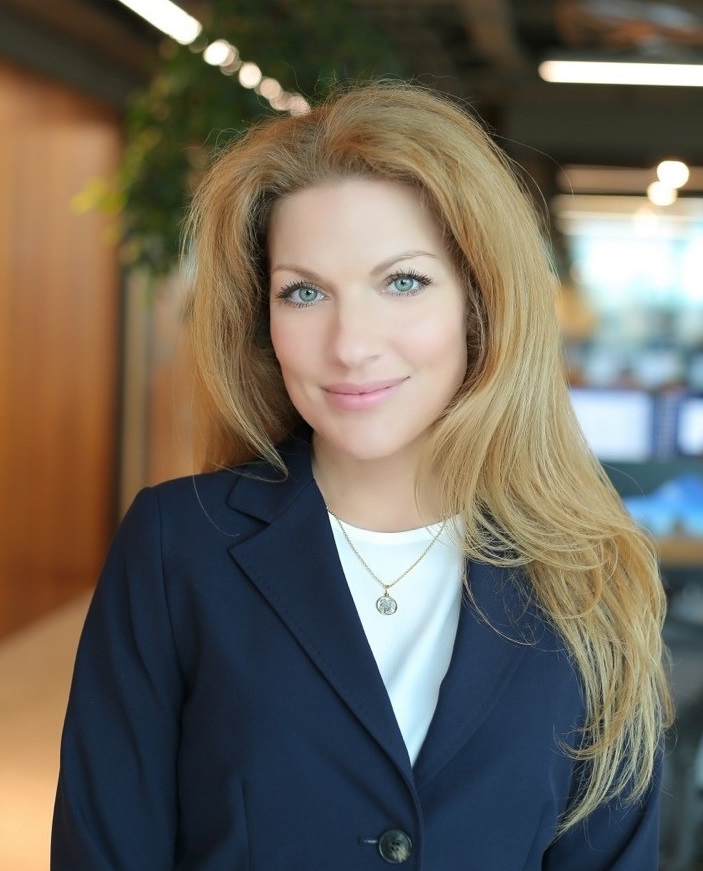
Natalia S. Babekina, graduated from the Moscow Technical University of Communications and Informatics; in 2011 - from the Diplomatic Academy of the Ministry of Foreign Affairs of the Russian Federation. In 2006 completed trainings at the United States Telecommunications Training Institute.
Babekina Natalia S. joined the state civil service in 2004. Her activities included working with the countries of the Asia-Pacific region, the United States, the European Commission, and later with the countries of Latin America. Then she worked as a leading, chief specialist, deputy head of the same department, and for a long time worked as the head. As part of her duties as Acting Head of the Department, she also worked hard to strengthen cooperation with the CIS, the Regional Commonwealth in the field of communications, the SCO, the Council of the Baltic Sea States, and the Northern Dimension project.
In March 2007, Babekina Natalia S. was appointed Head of the Directorate of International Organizations; she had the department's management, having competence both in terms of bilateral cooperation with foreign countries and in terms of multilateral formats. Since April 8, 2020, she has been appointed Deputy Director of the Department of International Cooperation.
Based on the tasks assigned to the Department of International Cooperation, N. S. Babekina leads the activities of the department in terms of cooperation with international organizations, is the responsible coordinator of such topics as: "building trust and security of and in the use of ICTs", "international information security", "Internet-governance" etc. She also ensures effective interaction with other structural units of the Ministry on international issues; forms the position of the Russian Administration, develops a strategy and tactics.
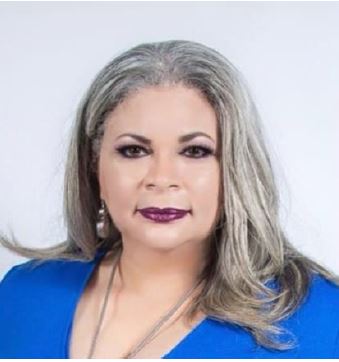
Dr. Maria Myers-Hamilton, Ed. D has been a pioneer in the field of Information Technology and Communications for over 30 years. Maria is the current Managing Director at the Spectrum Management Authority (“the SMA”), the regulator of Spectrum Radio Frequency, where she has spearheaded several initiatives, including the implementation of the Spectrum CAP, the Spectrum Pricing Policy, the Spectrum Management Framework, the Amateur Radio Operators Exam and the online Radio Technician (Class B) Course.
Maria currently serves as the Vice Chairwoman of the Caribbean Telecommunications Union (CTU), an inter-governmental organization dedicated to supporting the development of the Caribbean information and communications technologies (ICT) sector and Sub-Committee Chairwoman in the National Council on Education, where the focus is on addressing the issues impacting the education process. Additionally and under Maria’s leadership, the SMA team implemented the allocation of the radio frequency spectrum for Jamaica in keeping with the National Frequency Allocation Table (NFAT).
Prior to assuming the position of Managing Director of the SMA in January 2018, Maria was involved in several ICT based engagements in both the public and private sectors. For a period of close to three (3) years, Maria served as Director of Information Systems at the Jamaica Public Service Company where she led a team of seventy (70) members and completed thirty-five (35) ICT projects, on time and within budget. Also, Maria served as Senior Consultant at Lignum Systems Co. Limited, a firm that provided a wide range of I.T. consultancy services to both public and private sector companies.
In the mid 2000’s Maria served as Director, Records and Information Management, Registrar General’s Department; Manager, Business Development and Research at Jamaica Promotions Corporation (JAMPRO), prior to which she was employed to RBTT Bank (Jamaica) Limited in the post of General Manager – I.T. / Chief Information Officer during 2001–2004. During the period 1998–2001, she shared her expertise as Group MIS Manager / Team Lead for Union Bank IT Transformation, with the Financial Sector Adjustment Company Limited (FINSAC).
Dr. Myers-Hamilton holds a Doctorate in Education (Ed. D) in Instructional Technology & Distant
Learning from the Nova Southeastern University’s Fischler School of Education. She is currently the Director of the Jamaica Autism Support Association and Trustee Chairperson of e-Gov Jamaica Pension Fund. Her previous directorships involved the use and promotion of technology include e-Gov Jamaica Limited, Cross Sectoral Coordination - Early Childhood Commission, Jamaica Electronic Transmission (JETS) Company.

Kate believes that digital technology products, new technology policies and updated business model practices are required to make transformative change in the lives of the under-served and decrease the growing digital divide. Kate joined DIAL in February, 2016 as its CEO to fulfill this vision. She has committed the past 26 years to bringing diverse stakeholders together to find common ground in business, technology, and policy, holding leadership roles in both the corporate and non-profit sector.
Prior to DIAL, Kate co-founded and led the Digital Health Solutions Group at PATH, the Seattle-based international health organization driving transformative innovation to save lives. During her eight years at PATH, Kate designed and led several global projects, working in both Africa and Asia, most notably those including the use of digital technology to improve the delivery of immunization services and health information systems for universal health coverage. Prior to PATH, Kate held diverse senior roles in the commercial software sector and international trade. At Microsoft, Intel, and General Electric, Kate held roles in ICT product development and launch, strategic planning, and business development, including launching Xbox Live in Europe and leading deal negotiations with telecom providers in 25 markets worldwide.
In the non-profit sector, Kate led policy efforts as the President of the Washington Council on International Trade and the Director for Indonesia Affairs at the U.S. ASEAN Council. At both organizations, she partnered closely with U.S. corporations and government partners to strike mutually beneficial international trade agreements and expand market access for small and medium size enterprises.
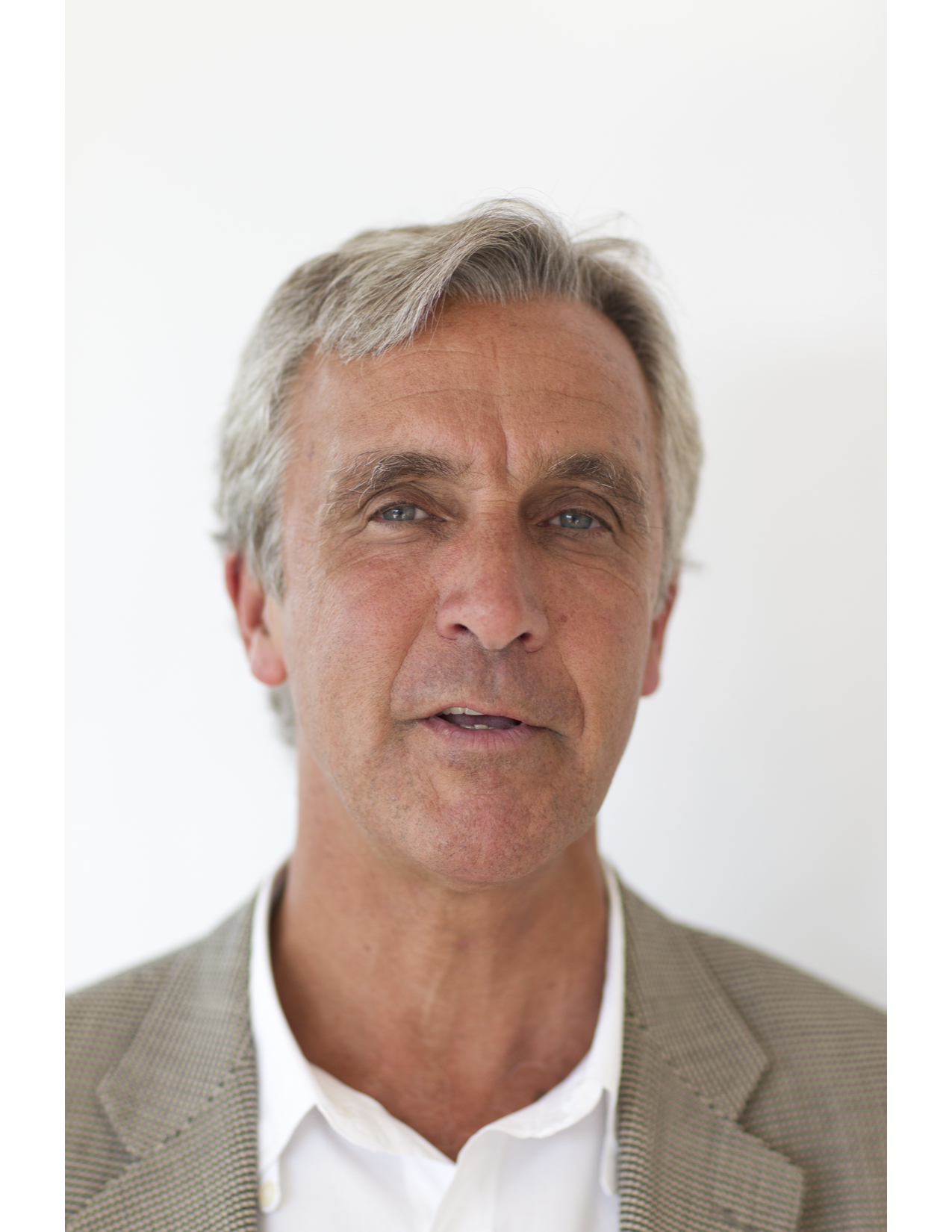
Michael W. Hodin, Ph.D. is CEO of the Global Coalition on Aging, Managing Partner at High Lantern Group, and a Fellow at Oxford University’s Harris Manchester College. He is also a blogger on Medium.
From 1976-80, Mike was Legislative Assistant to Senator Daniel Patrick Moynihan. During this period he was also a Visiting Scholar at Brookings Institution, on U.S. Foreign Economic Policy. He was a senior executive at Pfizer, Inc. for 30 years, where he created and then led its International Public Affairs and Public Policy operations and served on Management Boards for a number of its businesses.
Mike is a Member of the Council on Foreign Relations, and from 2010-2013, was Adjunct Senior Fellow with a focus on population aging. In 2013, Mike was invited by then-Committee Chairman Bill Nelson (D-FL) to lead a Members’ Roundtable with the U.S. Senate Special Committee on Aging. Mike was also the recipient of the 2012 Fred D. Thompson Award from the American Federation for Aging Research. He sits on the Boards of the Foreign Policy Association, Business Council for International Understanding, NYC Blood Center, American Skin Association, American Federation for Aging Research and Emigrant Savings Bank, where he is Chairman of its compensation committee. Mike was a member of the World Economic Forum’s Global Agenda Council on Ageing. And he sits on the Advisory Board for the Milken Institute Center for the Future of Aging.
Mike holds a BA, cum laude, Cornell University, M.Sc.in International Relations from The London School of Economics and Political Science, and M.Phil and Ph.D. in Political Science from Columbia University.

Annesha Chowdhury is the Program Manager at Asia Initiatives. She is a PhD candidate at the Academy for Conservation Sciences and Sustainability Studies at Ashoka Trust for Research in Ecology and the Environment (ATREE, Bangalore, India). Her research uses interdisciplinary methods that combine on-ground ecological, remote sensing and sociology data to understand how human-dominated agroecosystems can be better managed for biodiversity conservation and human wellbeing.
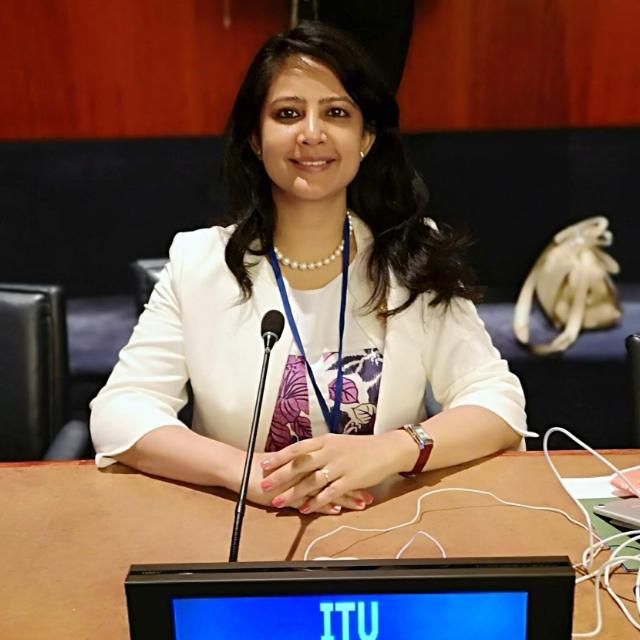
-
 C1. The role of governments and all stakeholders in the promotion of ICTs for development
C1. The role of governments and all stakeholders in the promotion of ICTs for development
-
 C2. Information and communication infrastructure
C2. Information and communication infrastructure
-
 C3. Access to information and knowledge
C3. Access to information and knowledge
-
 C4. Capacity building
C4. Capacity building
-
 C5. Building confidence and security in use of ICTs
C5. Building confidence and security in use of ICTs
-
 C6. Enabling environment
C6. Enabling environment
-
 C7. ICT applications: benefits in all aspects of life — E-government
C7. ICT applications: benefits in all aspects of life — E-government
-
 C7. ICT applications: benefits in all aspects of life — E-business
C7. ICT applications: benefits in all aspects of life — E-business
-
 C7. ICT applications: benefits in all aspects of life — E-learning
C7. ICT applications: benefits in all aspects of life — E-learning
-
 C7. ICT applications: benefits in all aspects of life — E-health
C7. ICT applications: benefits in all aspects of life — E-health
-
 C7. ICT applications: benefits in all aspects of life — E-employment
C7. ICT applications: benefits in all aspects of life — E-employment
-
 C7. ICT applications: benefits in all aspects of life — E-environment
C7. ICT applications: benefits in all aspects of life — E-environment
-
 C7. ICT applications: benefits in all aspects of life — E-agriculture
C7. ICT applications: benefits in all aspects of life — E-agriculture
-
 C7. ICT applications: benefits in all aspects of life — E-science
C7. ICT applications: benefits in all aspects of life — E-science
-
 C8. Cultural diversity and identity, linguistic diversity and local content
C8. Cultural diversity and identity, linguistic diversity and local content
-
 C9. Media
C9. Media
-
 C10. Ethical dimensions of the Information Society
C10. Ethical dimensions of the Information Society
-
 C11. International and regional cooperation
C11. International and regional cooperation
-
 Goal 1: End poverty in all its forms everywhere
Goal 1: End poverty in all its forms everywhere
-
 Goal 2: End hunger, achieve food security and improved nutrition and promote sustainable agriculture
Goal 2: End hunger, achieve food security and improved nutrition and promote sustainable agriculture
-
 Goal 3: Ensure healthy lives and promote well-being for all
Goal 3: Ensure healthy lives and promote well-being for all
-
 Goal 4: Ensure inclusive and equitable quality education and promote lifelong learning opportunities for all
Goal 4: Ensure inclusive and equitable quality education and promote lifelong learning opportunities for all
-
 Goal 5: Achieve gender equality and empower all women and girls
Goal 5: Achieve gender equality and empower all women and girls
-
 Goal 6: Ensure access to water and sanitation for all
Goal 6: Ensure access to water and sanitation for all
-
 Goal 7: Ensure access to affordable, reliable, sustainable and modern energy for all
Goal 7: Ensure access to affordable, reliable, sustainable and modern energy for all
-
 Goal 8: Promote inclusive and sustainable economic growth, employment and decent work for all
Goal 8: Promote inclusive and sustainable economic growth, employment and decent work for all
-
 Goal 9: Build resilient infrastructure, promote sustainable industrialization and foster innovation
Goal 9: Build resilient infrastructure, promote sustainable industrialization and foster innovation
-
 Goal 10: Reduce inequality within and among countries
Goal 10: Reduce inequality within and among countries
-
 Goal 11: Make cities inclusive, safe, resilient and sustainable
Goal 11: Make cities inclusive, safe, resilient and sustainable
-
 Goal 12: Ensure sustainable consumption and production patterns
Goal 12: Ensure sustainable consumption and production patterns
-
 Goal 13: Take urgent action to combat climate change and its impacts
Goal 13: Take urgent action to combat climate change and its impacts
-
 Goal 14: Conserve and sustainably use the oceans, seas and marine resources
Goal 14: Conserve and sustainably use the oceans, seas and marine resources
-
 Goal 15: Sustainably manage forests, combat desertification, halt and reverse land degradation, halt biodiversity loss
Goal 15: Sustainably manage forests, combat desertification, halt and reverse land degradation, halt biodiversity loss
-
 Goal 16: Promote just, peaceful and inclusive societies
Goal 16: Promote just, peaceful and inclusive societies
-
 Goal 17: Revitalize the global partnership for sustainable development
Goal 17: Revitalize the global partnership for sustainable development
